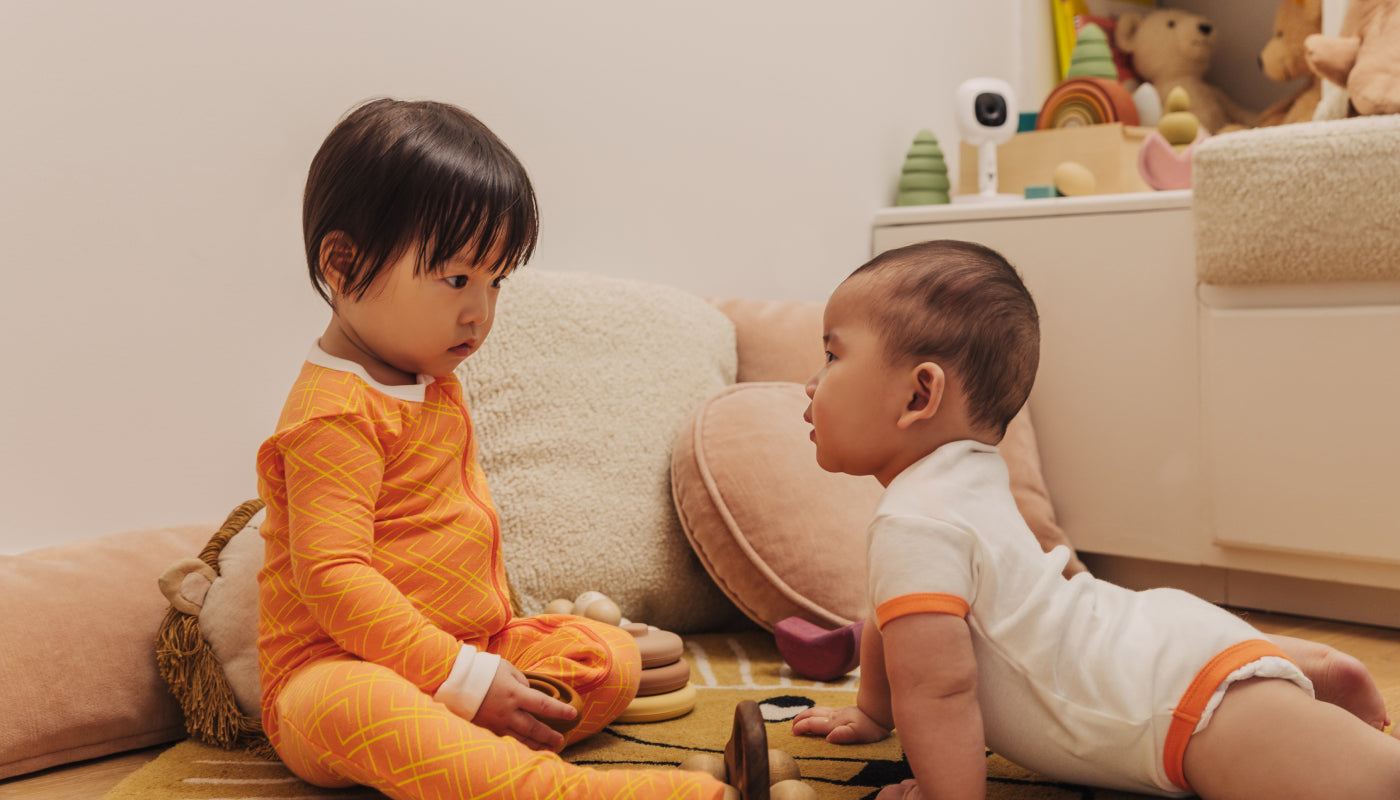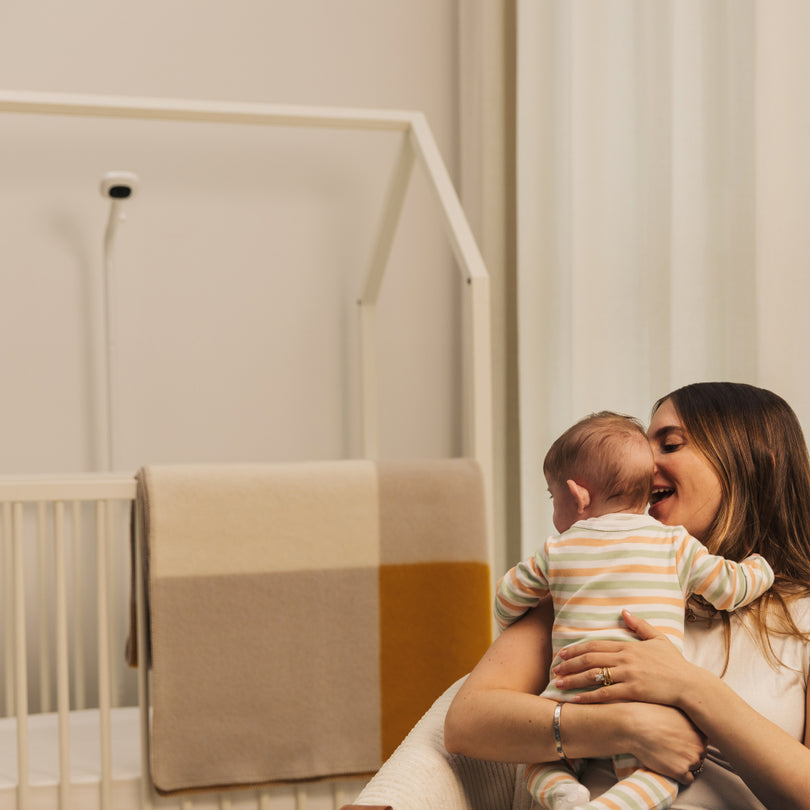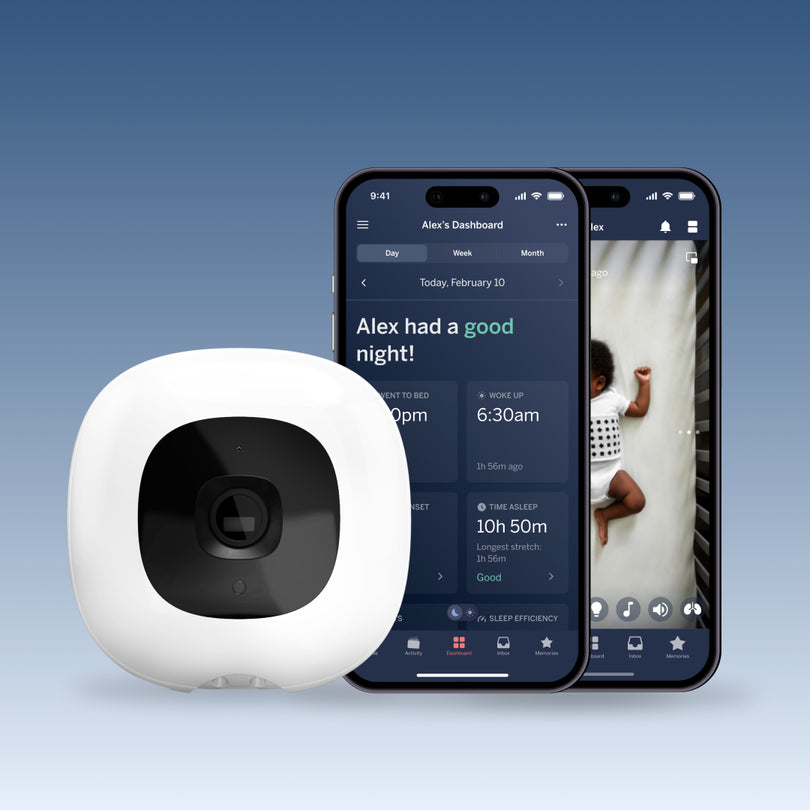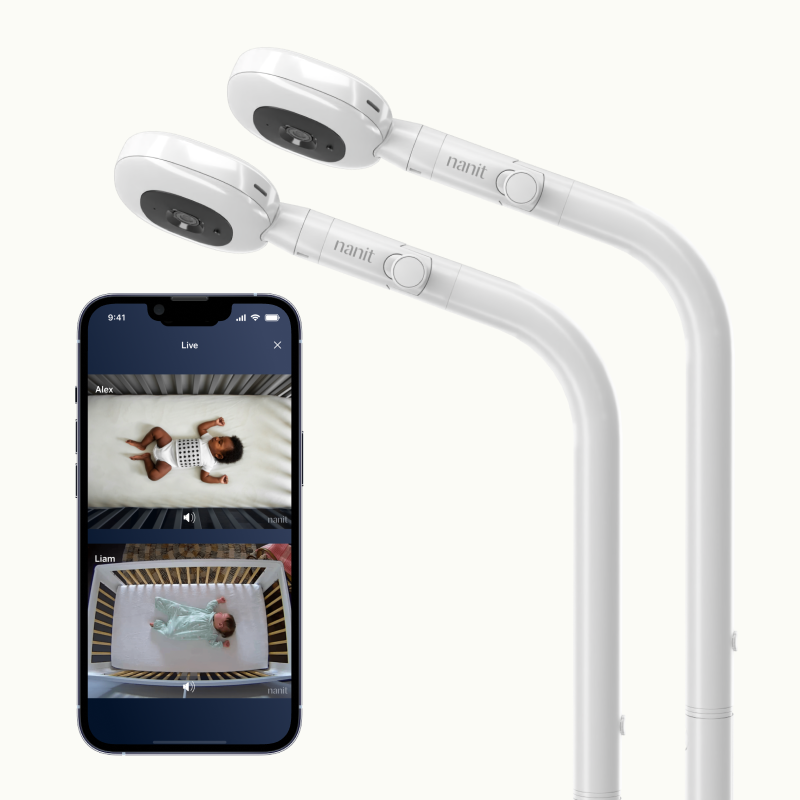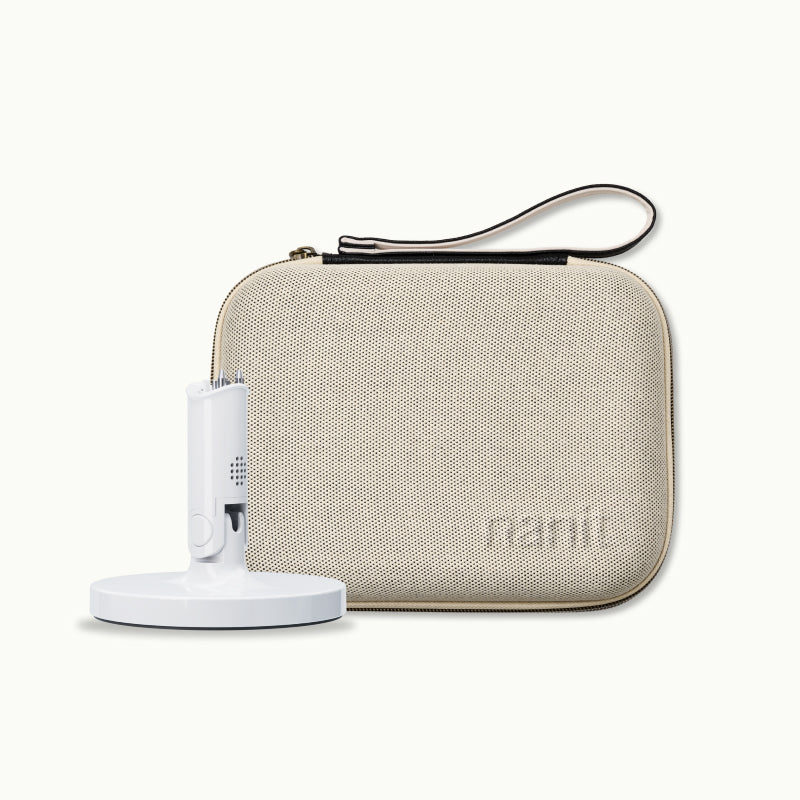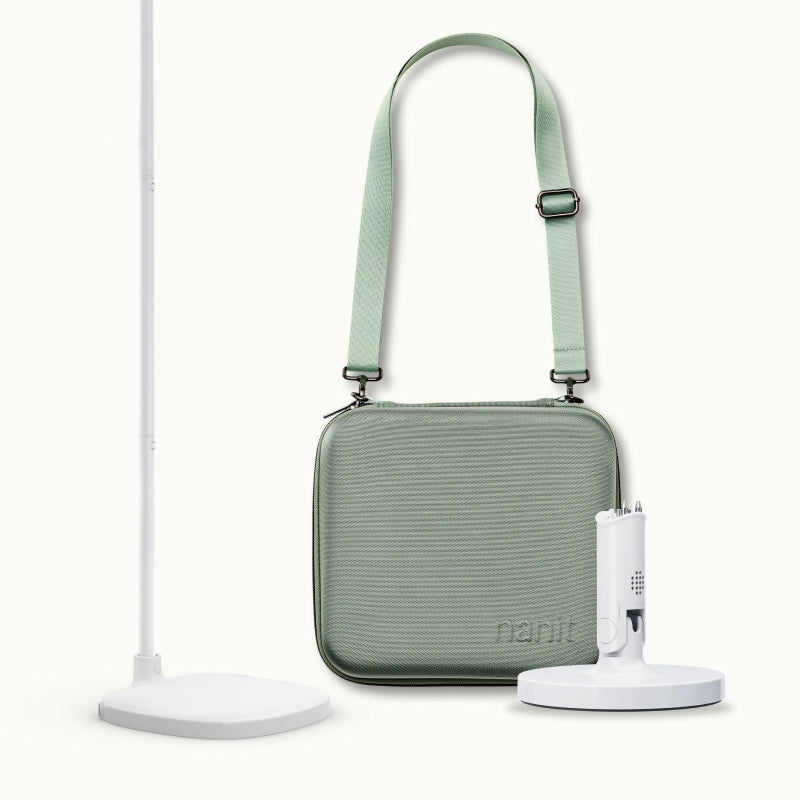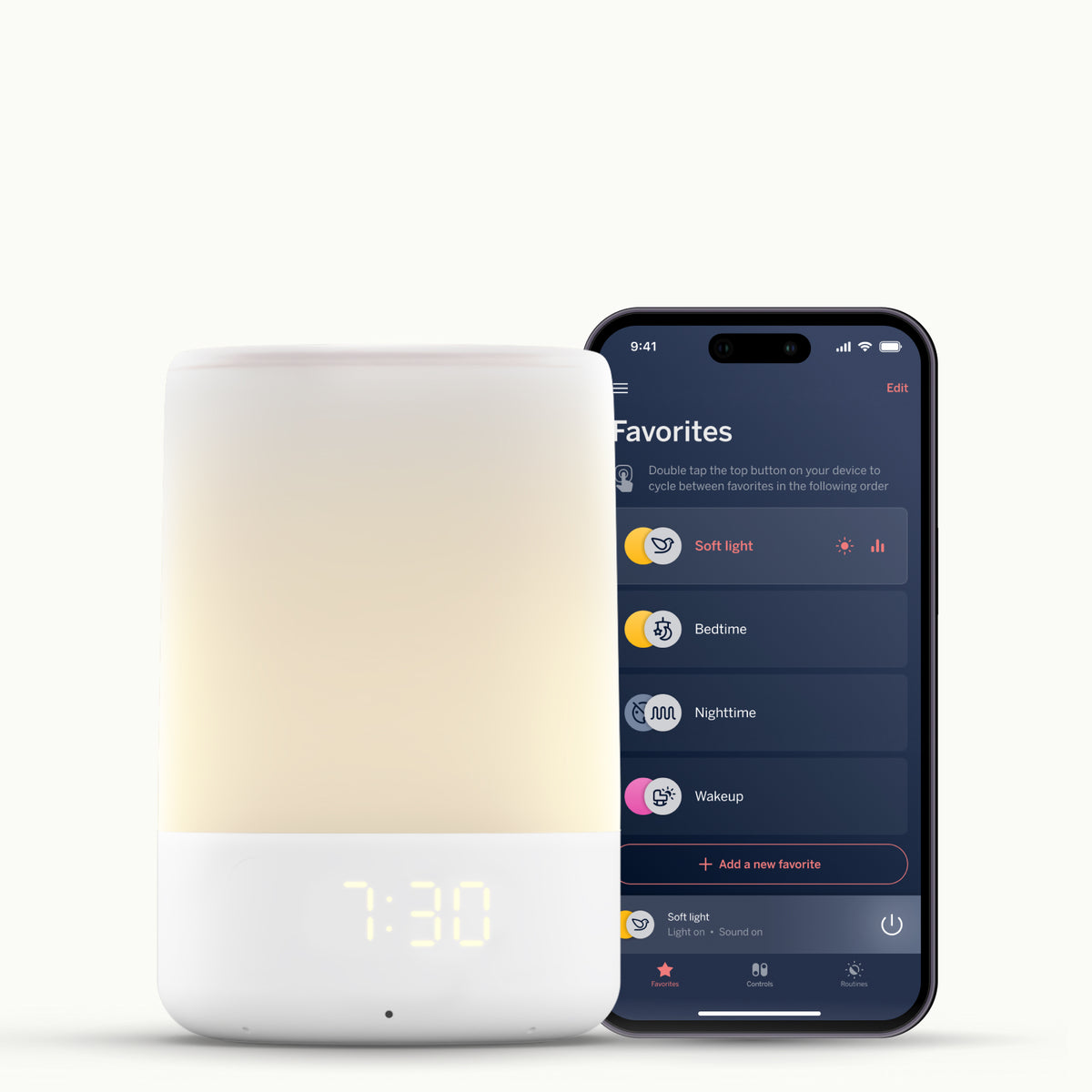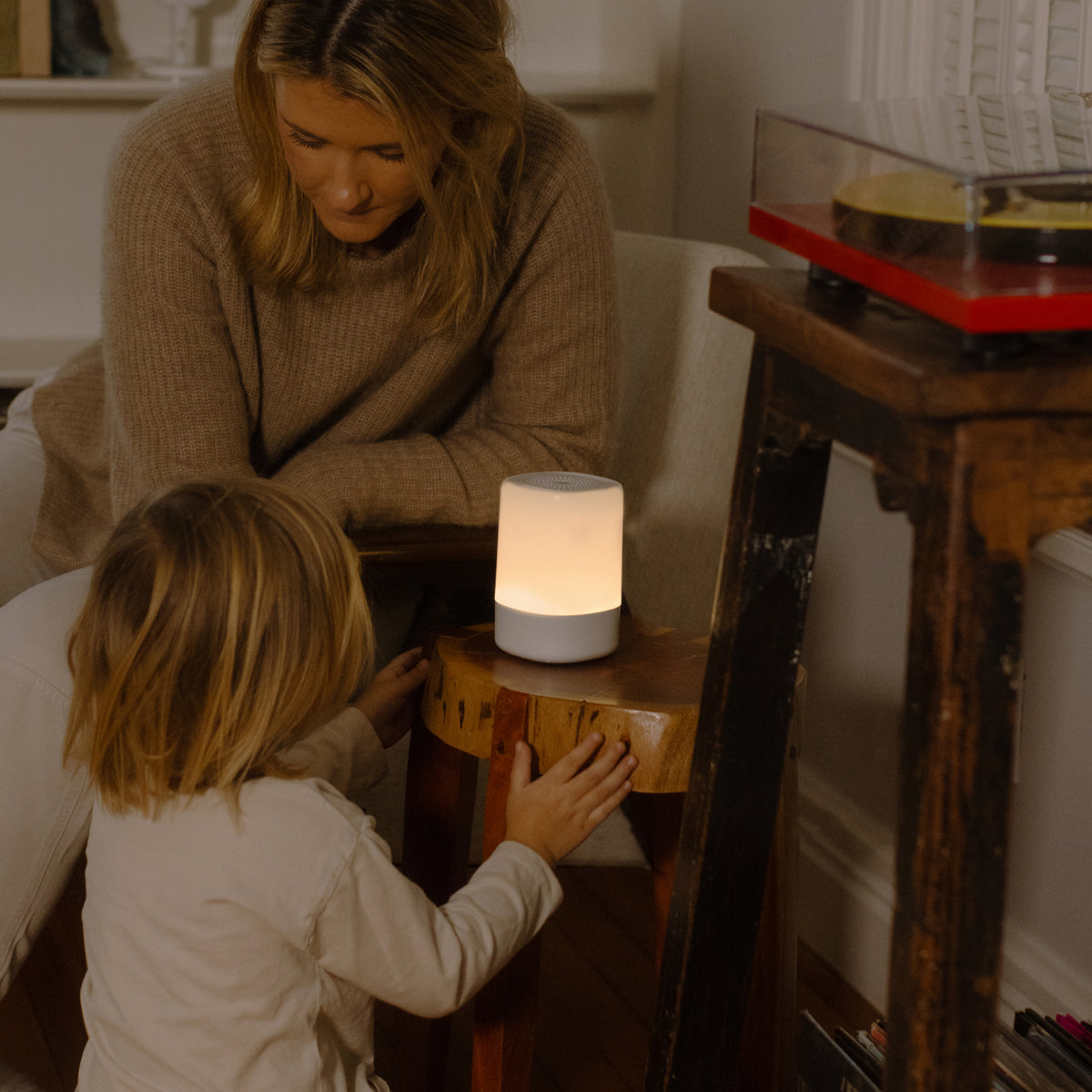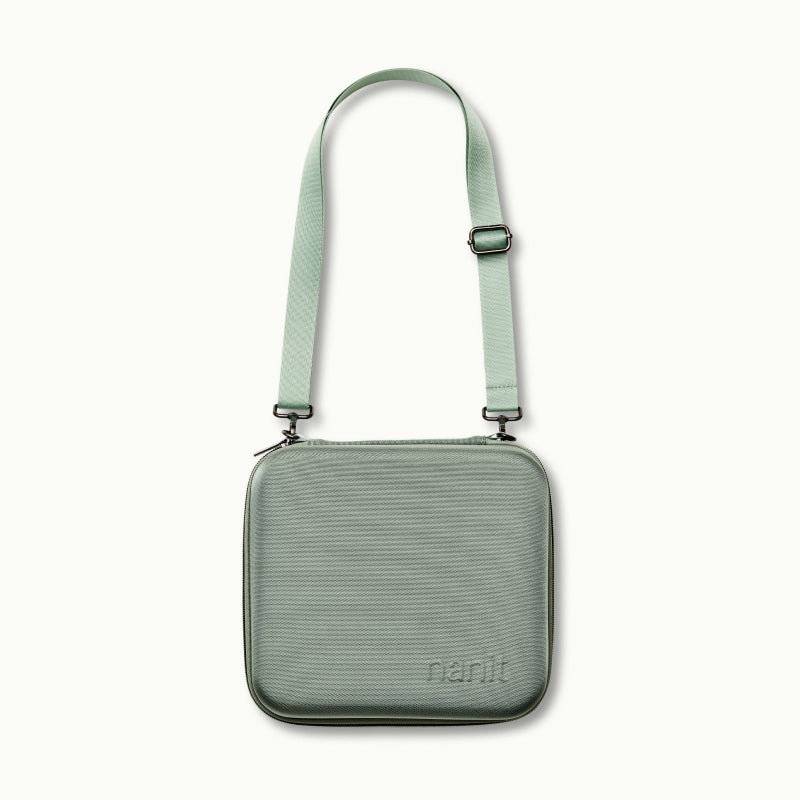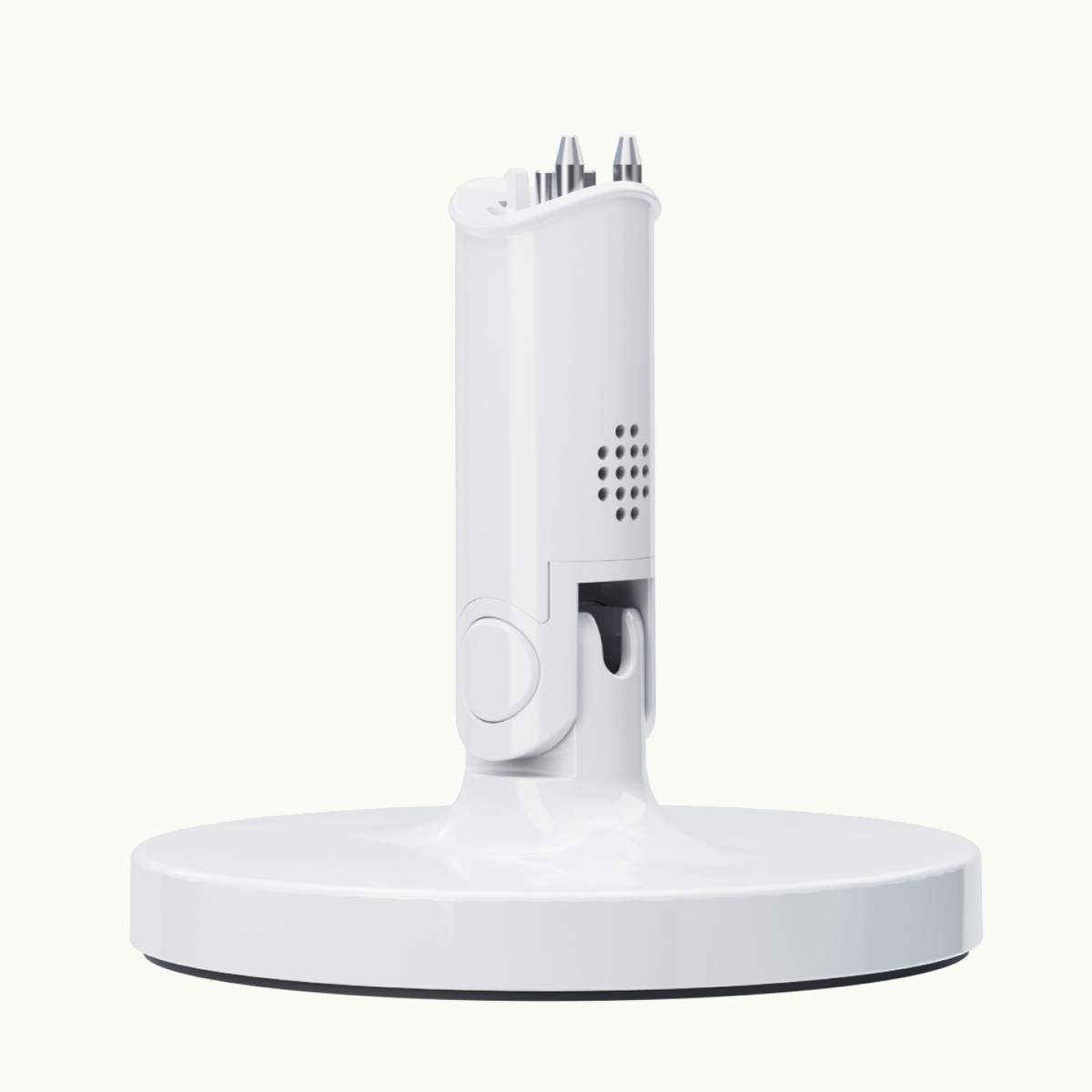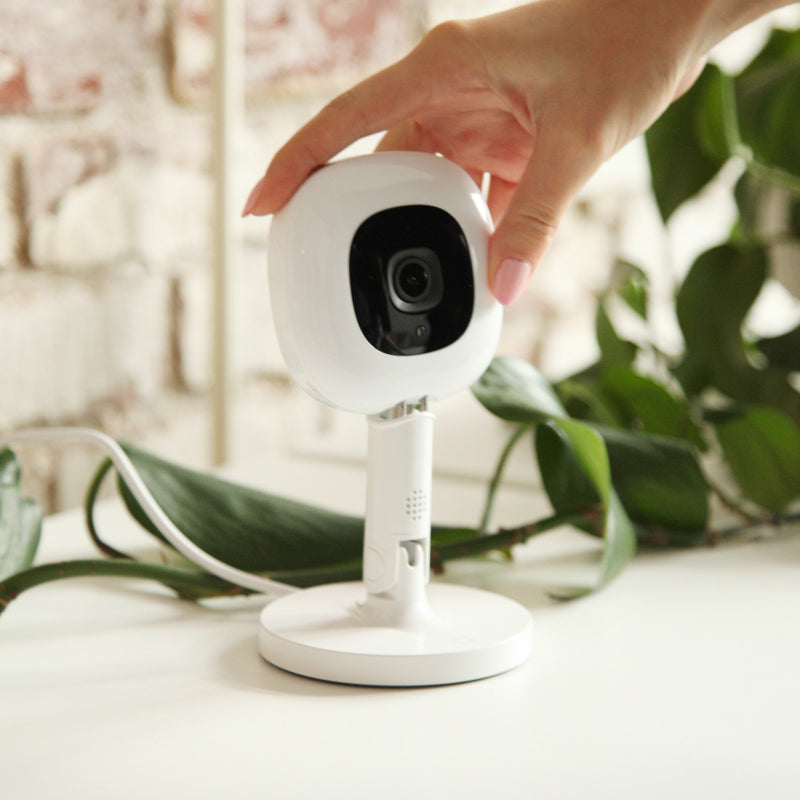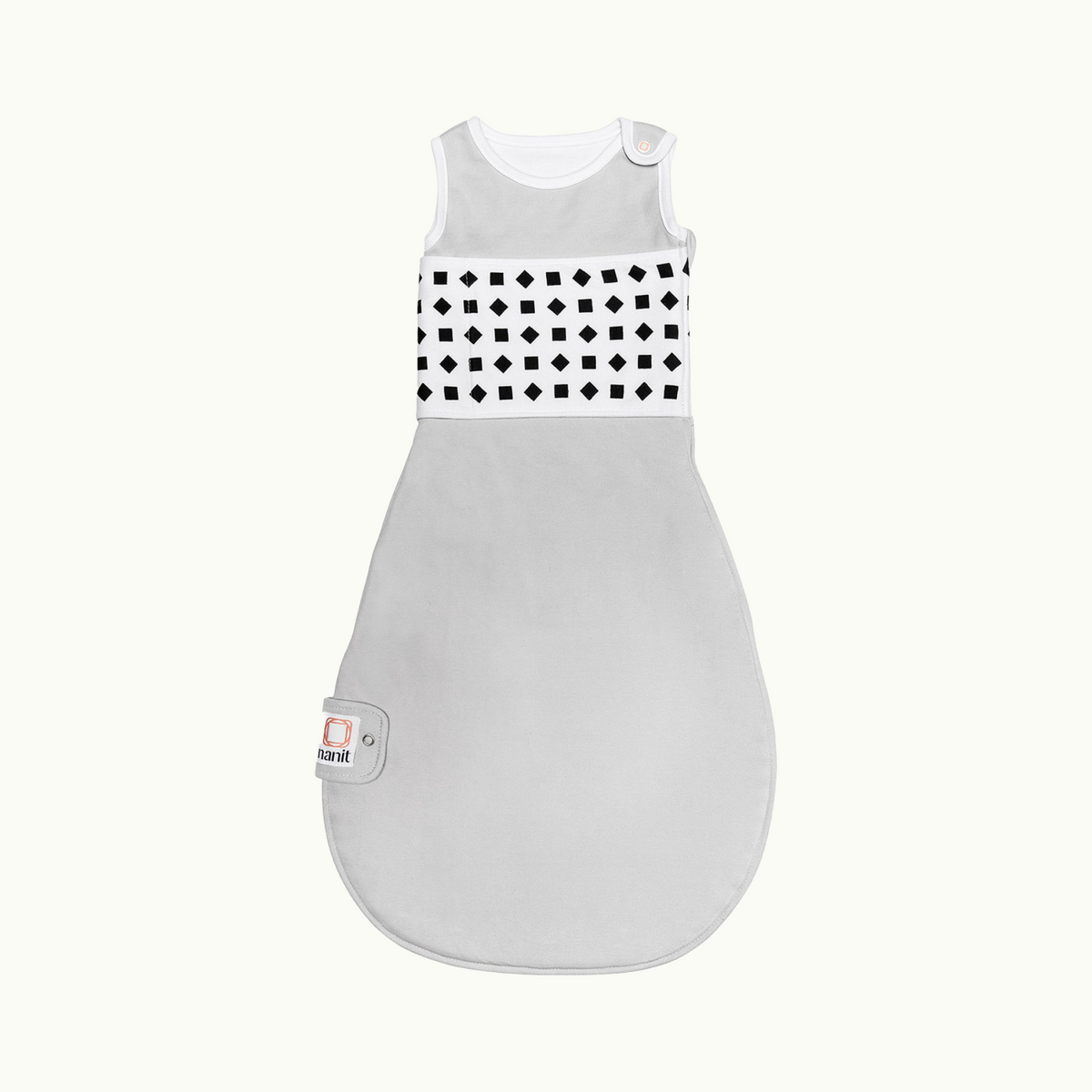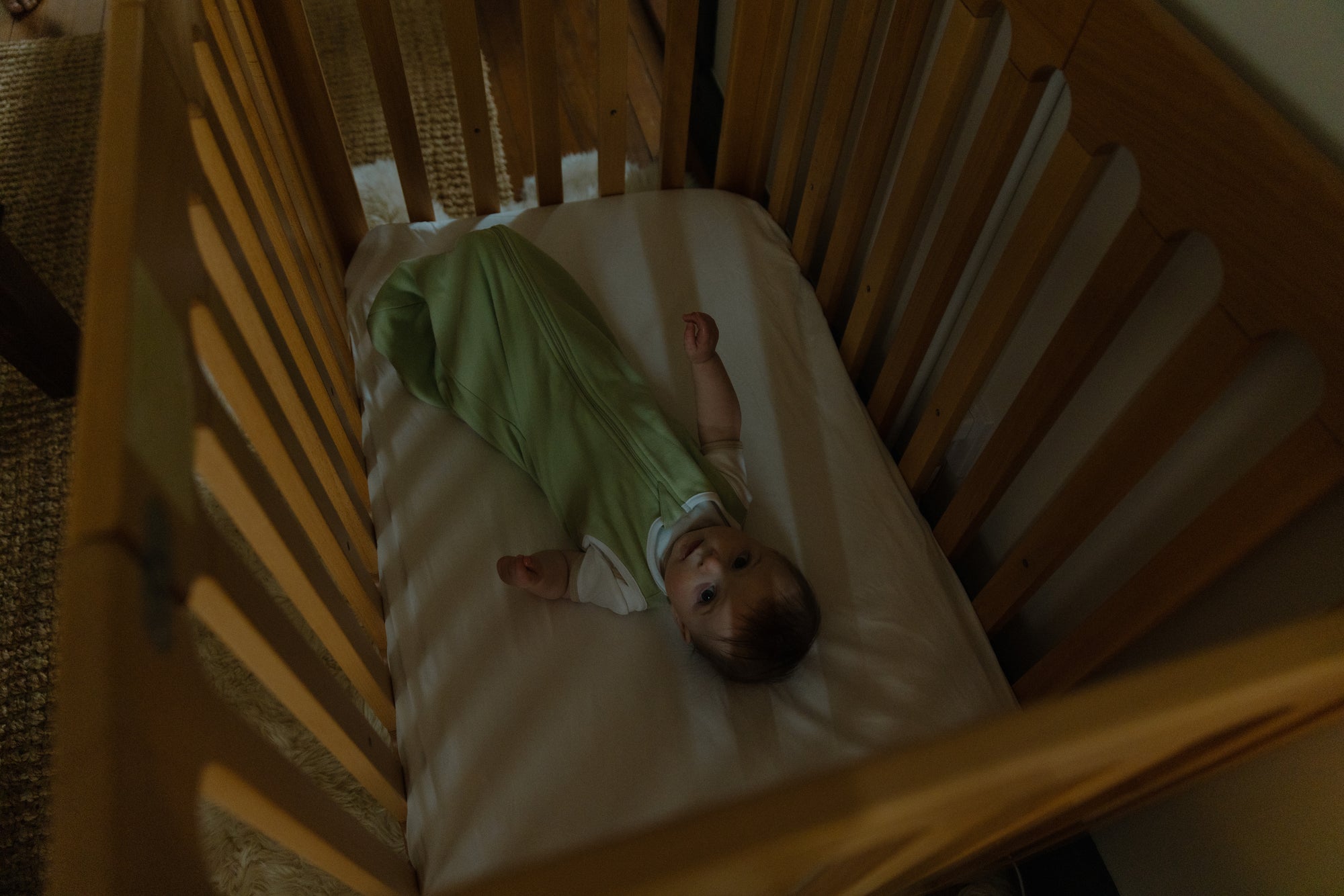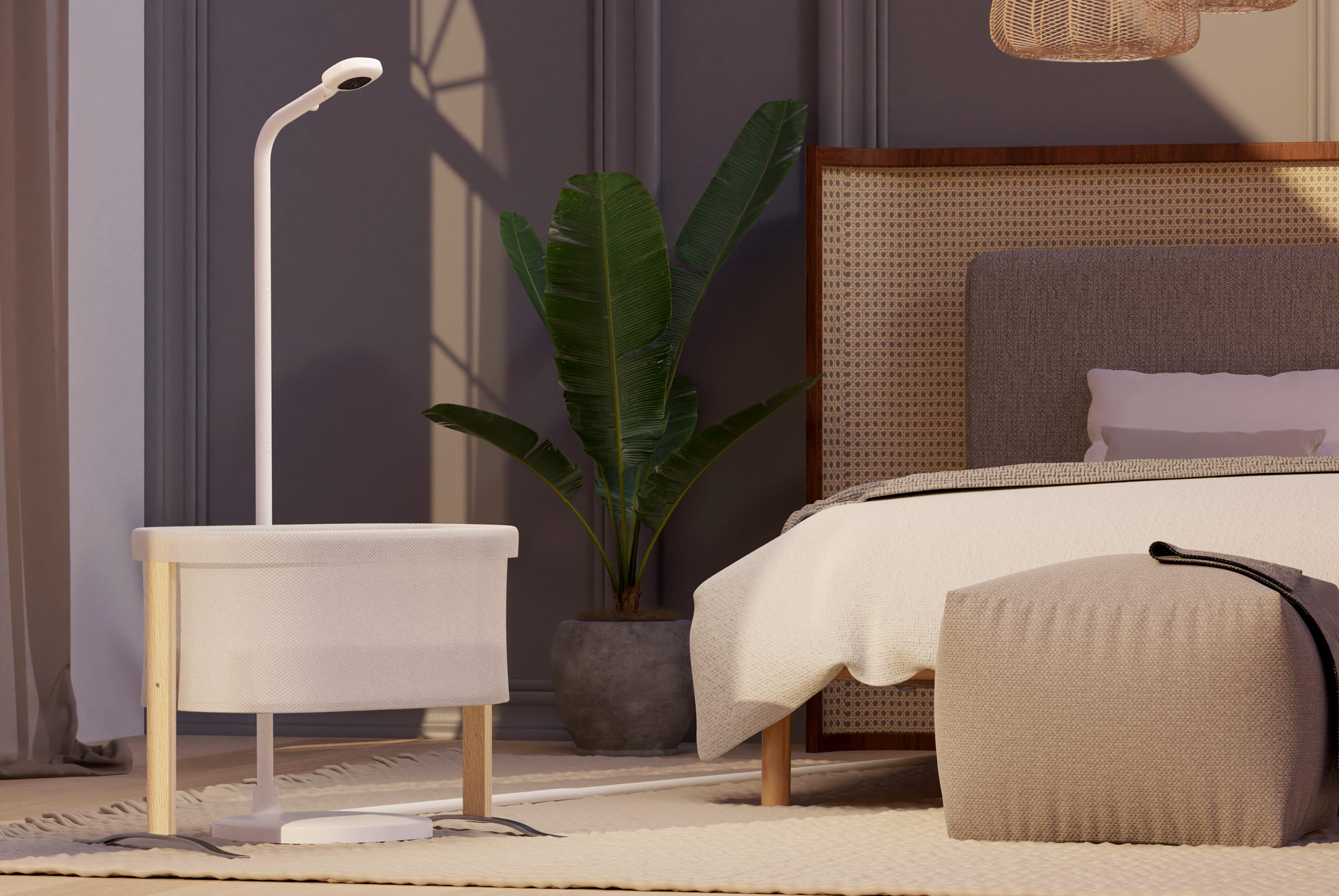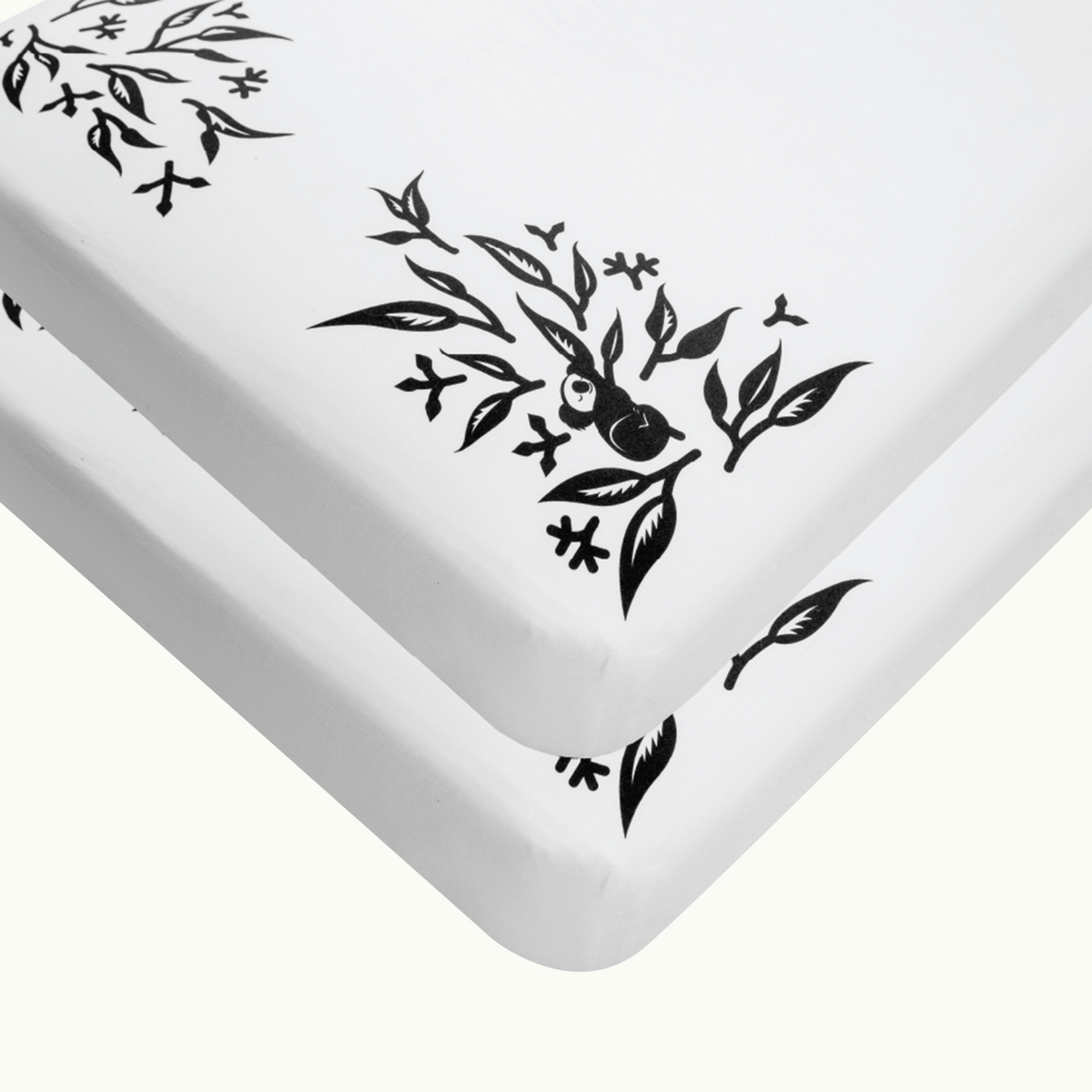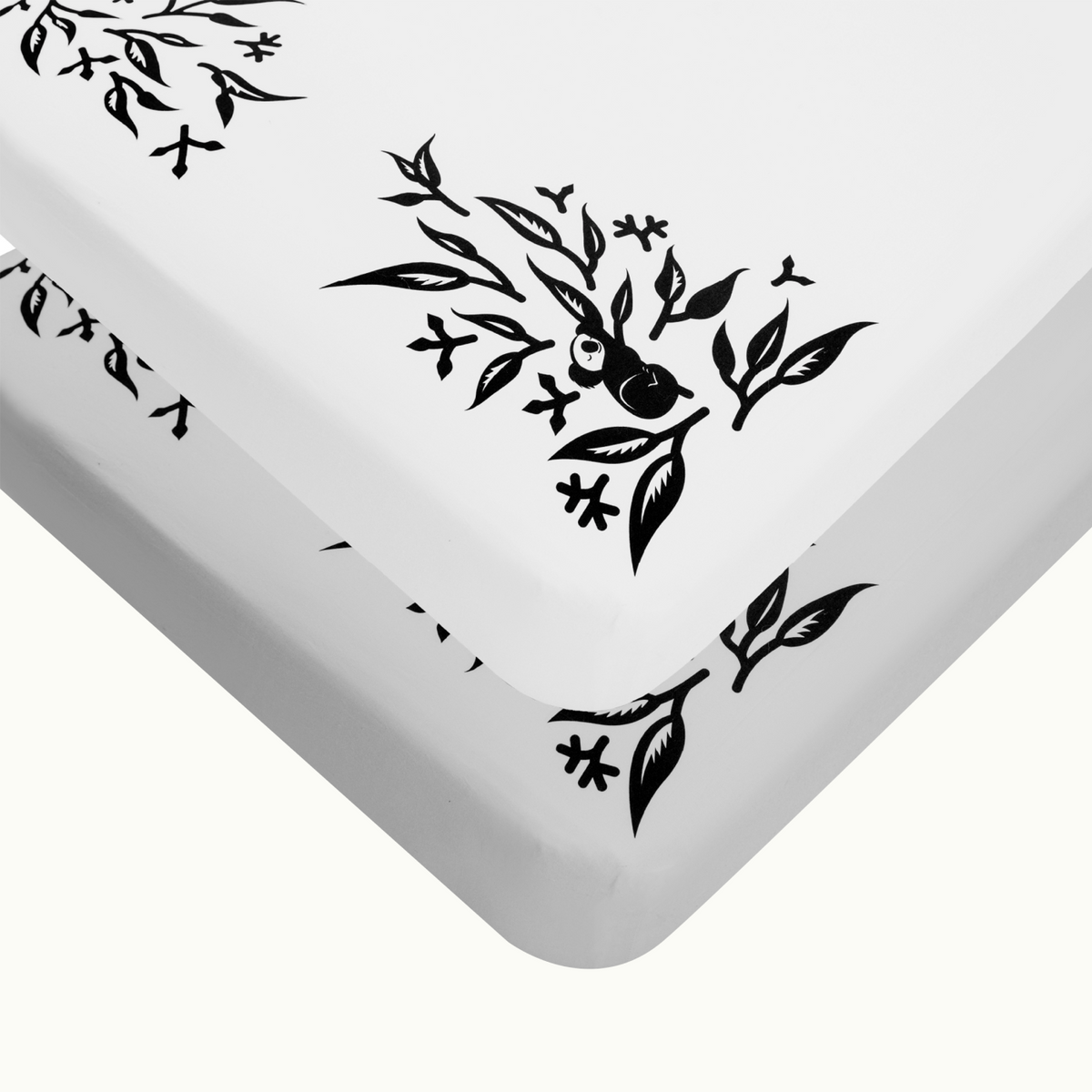Sleep is one of the most popular topics of conversations among our community members and for good reason! Though it is a key foundation of health and wellness at all ages, we know how hard it is to get the sleep you need as a new parent.
Dr. Rebecca Robbins and Dr. Natalie Barnett sat down with our community to discuss mastering the art of parent sleep. Read on for topics covered in the webinar and their tips for protecting and supporting your own sleep!
Why is sleep so important?
Even a few minutes or hours lost can make a huge difference!
- Mood is the first to go - you may find you are more irritable, more anxious, or less able to adjust your perspective. Lack of sleep is correlated with incidence of PMADs (such as PPA or PPD).
- Brain fog - underperforming at tasks you normally perform well at
- Vigilance - you will likely make decisions and respond more slowly
Long-term, good quality sleep is a predictor of a host of outcomes related to health and wellness.
Children are generally very well rested, because their sleep is prioritized and we help them by building in routines and consistency. It’s common for adults to think we are immune to needs for sleep and routines, but that’s not the case!
Managing sleep as a parent of a newborn
The first weeks and months are so hard when it comes to sleep while your baby adjusts to being out of the womb and you adjust to their erratic sleep patterns. Through it all, remind yourself that you will be a better YOU (person, parent, spouse, friend, etc.) if you prioritize your own sleep.
Where possible, find rituals during the day that fuel your spirit. For example, take a short morning walk around the block–even if it’s short, the morning light will help set your circadian rhythm, you’ll have a few moments to bond with your baby, and the fresh air and movement will be wonderful for you both! Humans have a built-in stress response, but we actually don’t have a fundamental built in ability to relax (and self soothe). In the same way you create a calming routine for your baby, think about what rituals you can incorporate for yourself around bedtime to trigger the soothing reflex.
If it’s an option for your family, a strategy that works really well is splitting time with your partner and having 3 nights on/3 nights off. When you’re off, you should be really off–in a separate sleep space with tools that will help you block out sounds that could disturb your rest (like baby crying!). You can adapt this model to suit your family (for example, switching every other night or halfway through each night).
“It is best to nap when the baby naps…" Fact or fiction?
Fiction! It’s not realistic for most people to nap every time your baby naps–your little one will take so many naps, and it doesn’t serve adults in the same way to take short naps throughout the day. If you’re able to squeeze one nap in, that's great, but don’t put too much pressure on it!
One thing that can help you take advantage of a window of naptime is to try to avoid caffeine. When the 3pm slump hits, avoid the coffee and try to take a power nap if you can! If you’re a little sleepy, then keep it short (a few seconds-20 minutes will make a difference). If you’re really exhausted, take up to 90 minutes if you have the time.
Parent sleep with older babies and toddlers
Even when babies start to sleep longer and more independently, we see that parents sometimes still struggle with their own sleep. This is an evolutionary phenomenon; your body naturally is more in tune with the environment around you, and you may be more likely to wake up during the night or have trouble falling asleep.
Getting good rest starts during the day. Managing your stress, exercising, and being thoughtful about nutrition (ex. eating a lighter dinner in the evening) can all support better sleep. Where possible, try to keep a consistent bedtime schedule within 1 hour. You’ll want to plan for a time you want to move towards bed (rather than a time you want to be asleep). Humans are creatures of habit, so erratic schedules make it hard for our bodies to understand it’s time to sleep.
Ritualize the time before bed, and your brain will start to learn the cues for rest. A successful bedtime routine doesn’t need to be extremely long and elaborate, it just needs to be consistent. Consciously slow down, limiting technology (tip: try night mode or apps like flux if you do need to use technology in the evening) and incorporating relaxing elements. A simple routine could include washing your face, brushing your teeth, dimming the lights, and doing a quick meditation/mindfulness exercise.
If you do wake up during the night, take it in stride. Rest assured that you have thought through your plan for keeping your little one safe while they are sleeping, so trust in that plan. Self-talk here is really important–be kind to yourself. It can help to return to your bedtime ritual to cue sleep for yourself again.
Audience Q&A
Q: What are some sleep transition strategies for parents that will be returning back to work after maternity leave?
A: First and foremost, find time for you in those early months back at work (ex. book, bath, exercise, mindless tv). When thinking about sleep, work back from when you need to leave in the morning, get as close to 7 hours of sleep as possible, and build in routines to help you relax and unwind before bedtime.
Q: Do you recommend having a “morning routine” as a parent–is it helpful to try and wake up before your child? I struggle so much with that since she is already waking between 6:30 and 6:45 am.
A: Ask yourself when you do your best work, and then determine. Think about how to preserve your routines that allow you to be successful. If you’re not a morning person, don’t force it.
Q: I have a toddler and am expecting my second- some days after putting my toddler to bed I get into bed shortly thereafter… is it bad to be getting into bed for the evening close to 8 pm? I’m exhausted
A: Unless it’s a drastic change from your ‘normal,’ go for it! In the first and second trimester especially, extreme fatigue is very common. Lean into it, give your body what it needs, take the opportunity to sleep more if you have it! You can ride the bedtime mindset wave that you set with your little one–maybe you can try to take that with you moving forward!
Sleep is our superpower! This event was part of our September 2023 Parent Like a Pro Summit, a series of expert events to help you feel more confident—and sleep better! Check out all the event recaps here.
About Dr. Rebecca Robbins:

Dr. Robbins is Assistant Professor in Medicine at Harvard Medical School and an Associate Scientist at the Brigham and Women’s Hospital. Her research uses marketing and novel communication tools and technologies (i.e., smartphones and other mobile devices) to design persuasive behavior change interventions to improve sleep and circadian health . In 2011, Dr. Robbins co-authored a book on techniques for how to get good sleep entitled Sleep for Success! with Dr. James B. Maas. Dr. Robbins’ research has appeared in the New York Times, the Financial Times, and Readers' Digest. She has appeared in National television segments for The Today Show, Live! With Kelly Ripa and Ryan Seacrest, Fox Business News, ABC Nightline, CNBC, and CBS This Morning. Dr. Robbins holds a Ph.D. in Communication and Health Marketing from Cornell University.
About Dr. Natalie Barnett:

Dr. Barnett serves as VP of Clinical Research at Nanit. Natalie initiated sleep research collaborations at Nanit and in her current role, Natalie oversees collaborations with researchers at hospitals and universities around the world who use the Nanit camera to better understand pediatric sleep and leads the internal sleep and development research programs at Nanit. Natalie holds a Ph.D. in Genetics from the University of New England in Australia and a Postgraduate Certificate in Pediatric Sleep Science from the University of Western Australia. Natalie was an Assistant Professor in the Neurogenetics Unit at NYU School of Medicine prior to joining Nanit. Natalie is also the voice of Nanit's science-backed, personalized sleep tips delivered to users throughout their baby's first few years.

